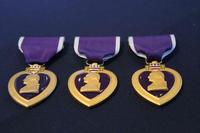In the wake of a rash of engine problems that have sidelined a number of the Navy's new littoral combat ships, the service is turning the first four LCSs into non-deploying test ships -- and overhauling its force employment strategy.
In a Sept. 8 announcement, Naval Surface Force Pacific Fleet officials said the changes would be implemented over the next five years and affect the 28 littoral combat ships budgeted and ordered through 2018.
The changes will "simplify crewing, stabilize testing and increase overseas deployment presence availability," officials said.
The decision to turn the first four $360 million ships -- the Freedom, the Independence, the Fort Worth and the Coronado -- into testing ships will allow the Navy to conduct near- and long-term testing for the entire ship class without affecting deployment rotations.
The ships designated for testing would be single-crewed, officials said, and would be able to deploy on a limited basis if necessary, but it would not be their primary purpose.
Of these ships -- two from the Freedom-class made by Lockheed Martin Corp. and Marinette Marine and two from the Independence-class built by Austal USA -- only one, the Independence, has not been sidelined with a serious engine issue in the last 12 months.
"This approach accommodates spiral development and rapid deployment of emerging weapons and delivery systems to the fleet without disrupting operational schedules," SURFPAC officials said in a news release.
Crewing model change
Starting this fall, the Navy also plans to phase out its current LCS crewing model, in which three rotating crews operate two ships, so that one of the ships can always be forward-deployed.
In its place, the service will introduce a two-crew "blue/gold" model like that used on ballistic missile submarines and minesweepers, officials said. Two crews per ship mean one will be able to complete homeport training and workups while the other crew deploys.
The LCS crews also will begin training and rotating with larger elements, known as mission module detachment crews, allowing the ships to deploy as part of four-ship groups. They can deploy with other surface warfare ships, mine warfare ships, or anti-submarine warfare ships, officials said.
Aviation detachments will also begin deploying with the same LCS crew, they said.
The Navy also plans to adjust homeporting for its LCSs to enable its new testing and crew plan. While all six ships now in service are homeported at Naval Base San Diego, plans call for all of the Independence-variant ships to be based in San Diego and Freedom-variant ships in Mayport, Florida.
Of the planned 28 LCSs, 24 will be divided into six divisions, divided between the East Coast and West Coast.
One warfare focus
Each of the divisions will have one warfare focus -- surface, mine or anti-submarine, as Navy leaders aim to maximize the capability of the LCS.
"Under this construct, each division's training ship will remain available locally to certify crews preparing to deploy," officials said.
Navy brass hope these changes will allow the service to deploy more and increase its presence, with a crewing model that makes more ships available for deployment at a given time.
In the release, officials added that a blue/gold crewing model might also simplify ownership of maintenance responsibilities -- a key area of concern amid a flurry of recent engine mishaps, including at least one caused by an engineer's error.
"As we implement these changes, we will continue to make iterative adjustments and improvements based on evolving fleet requirements and technological developments," Naval Surface Forces commander Vice Adm. Tom Rowden said in a statement. "Implementing the approved recommendations from this review and continuing to examine other areas for improvement will better position the LCS program for success -- both now and in the future."
Even more changes are likely coming for the LCS.
Rowden announced earlier this week that he had ordered a comprehensive LCS engineering review to be completed by the Surface Warfare Officer's School in the next 30 to 60 days, with further adjustments and recommendations expected to emerge from that review.
-- Hope Hodge Seck can be reached at hope.seck@military.com. Follow her on Twitter at@HopeSeck.
Related video:




























